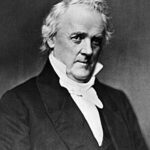The Diplomatic Decision
President James Buchanan faced a volatile situation in Utah Territory during 1857-1858. The Mormon War resolution required delicate negotiation between federal authority and religious autonomy. Tensions escalated when Mormon leaders resisted federal oversight and military presence. Buchanan chose diplomacy over prolonged military action to resolve the crisis.
Strategic Negotiation Process
Buchanan appointed peace commissioners to negotiate directly with Mormon leadership. 📊 The administration invested significant diplomatic resources rather than military escalation. Thomas Kane served as a key mediator between Washington and Salt Lake City. These negotiations demonstrated Buchanan’s commitment to peaceful conflict resolution.
The Compromise Agreement
The Mormon War resolution allowed Brigham Young to step down gracefully as territorial governor. ⚠️ Federal troops occupied Utah but avoided direct confrontation with Mormon settlers. Buchanan appointed Alfred Cumming as the new territorial governor in 1858. The agreement preserved federal authority while protecting religious freedoms. 💰 This approach saved enormous military expenditures and prevented widespread casualties.
Impact:
Immediate Consequences
The Mormon War resolution prevented what could have become a devastating religious conflict. 🔥 Military estimates suggested thousands of potential casualties without diplomatic intervention. Federal troops established peaceful presence rather than engaging in warfare. Mormon communities avoided forced displacement and religious persecution. The compromise maintained territorial integrity while respecting local governance.
Long-term Political Effects
Buchanan’s diplomatic success demonstrated effective federal conflict resolution strategies. 📉 The peaceful outcome reduced anti-Mormon sentiment in national politics temporarily. Utah Territory remained stable under federal oversight through the Civil War period. The Mormon War resolution became a model for handling religious minority conflicts. This approach influenced later territorial disputes throughout western expansion.
Historical Significance
The Mormon War resolution stands among Buchanan’s few widely praised presidential decisions. 🌍 International observers noted America’s ability to resolve internal conflicts peacefully. The diplomatic success contrasted sharply with Buchanan’s later failures during secession crisis. Modern historians recognize this as effective crisis management and religious tolerance. The peaceful resolution protected constitutional principles while maintaining federal authority in western territories.
